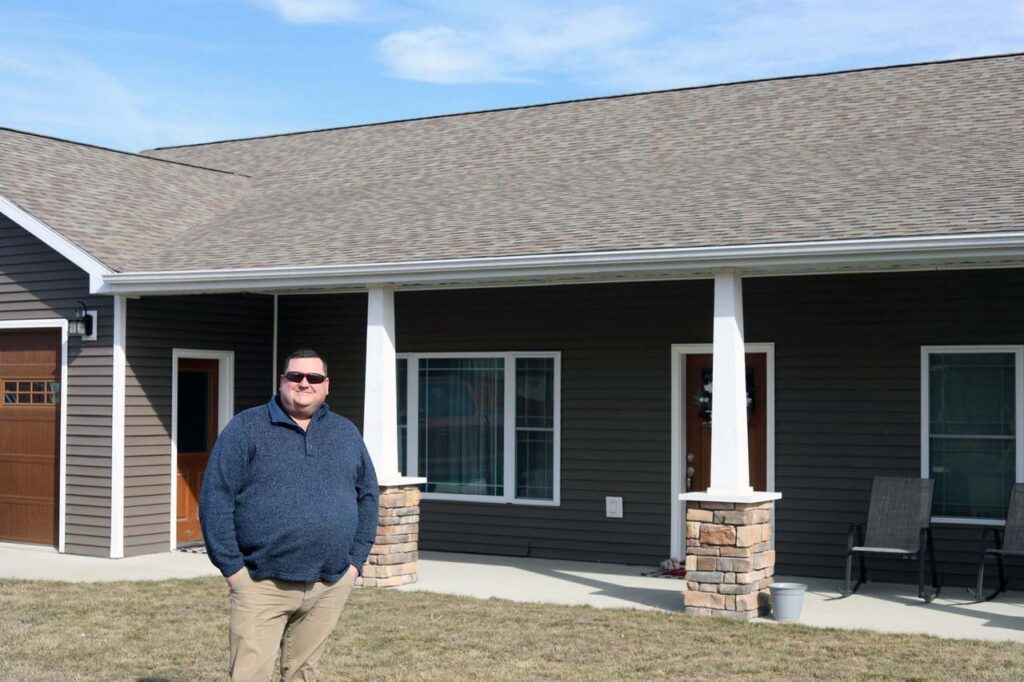
Tri-County Electric Cooperative’s Michael Scheib has experienced firsthand the frustrations of finding a home for his family in northeast Missouri.
In 2009, Scheib endured a discouraging, two-month house hunt after relocating to the co-op’s Lancaster headquarters for a new job as a line superintendent. During that time, he lived in a “cheap room in a motel” while his wife, Diane, and three young daughters stayed behind in Trenton, about 80 miles away.
Eventually, the family moved into a cramped fixer-upper in Glenwood that “we made work” after an extensive remodel, said Scheib, who’s now the co-op’s general manager.
“That’s typically what ends up happening, people try and make the houses work or they need a bunch of upkeep.”
Welcome to the crisis of “missing middle” housing, an industry term to describe what Scheib was looking for: a single-family home for young professionals that’s not a fancy custom-built mansion, low-end rental or manufactured home.
Tri-County EC is taking the lead on a workforce housing pilot project targeting “missing middle” stock in partnership with two generation and transmission co-ops, Palmyra-based Northeast Electric Power Cooperative and Springfield-based Associated Electric Cooperative, a rural housing development firm and regional planners.
“This issue is so important to me because I know the struggle,” Scheib said. “You find the perfect job, but you need a house. There might be good-paying jobs, but if there’s no housing and no childcare, it’s hard to keep people. Once you buy, you typically stay.”
The co-op and other stakeholders have partnered with Hometown Housing, a housing consultant based in Leon, Iowa, to analyze local housing needs and identify locations for new builds. Hometown Housing helps renters apply for loans and other services to get them on the path to homeownership.
“We educate people on their options,” said Hometown Housing’s Shane Akers. “We ask what their desires are and try to match the housing opportunity through what’s available in the community” or through new construction.
In Missouri, stakeholders surveyed employers of 100-plus workers, including the city of Kirksville, and found that lack of housing left 1,000 jobs unfilled in three counties in the co-op’s service area. Next, workers answered an email census on housing characteristics, and focus groups in the three counties are now under way.
The housing shortage hasn’t kept Tri-County Electric from attracting workers, Scheib said. But a reckoning could be in store for Missouri co-ops seeking to replace retiring upper-level management, said Northeast Power’s Allie Bennett, manager of economic development and member services.
“If you have to ‘settle’ in regard to your housing needs, sometimes you might not be getting the best candidates,” said Bennett, who herself lives about 30 minutes from the Palmyra G&T but wants to live closer.
Scheib said he’s getting inquiries from the public about the program, which is open to all residents in Tri-County EC’s service area, regardless of membership. “If you want the community to be better, you have to think outside the box beyond members because it’s still the community we serve.”
Victoria A. Rocha is a staff writer for NRECA.